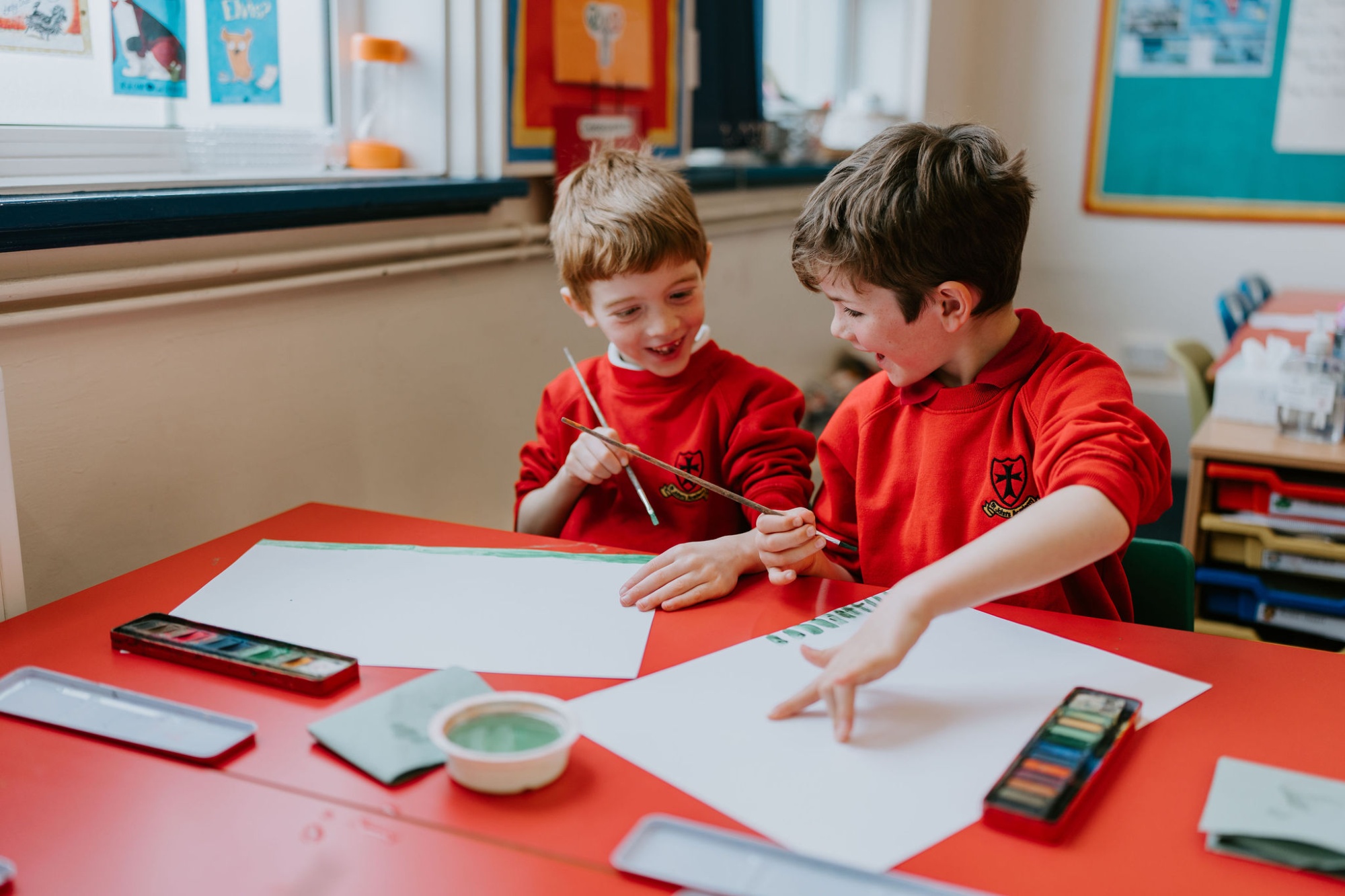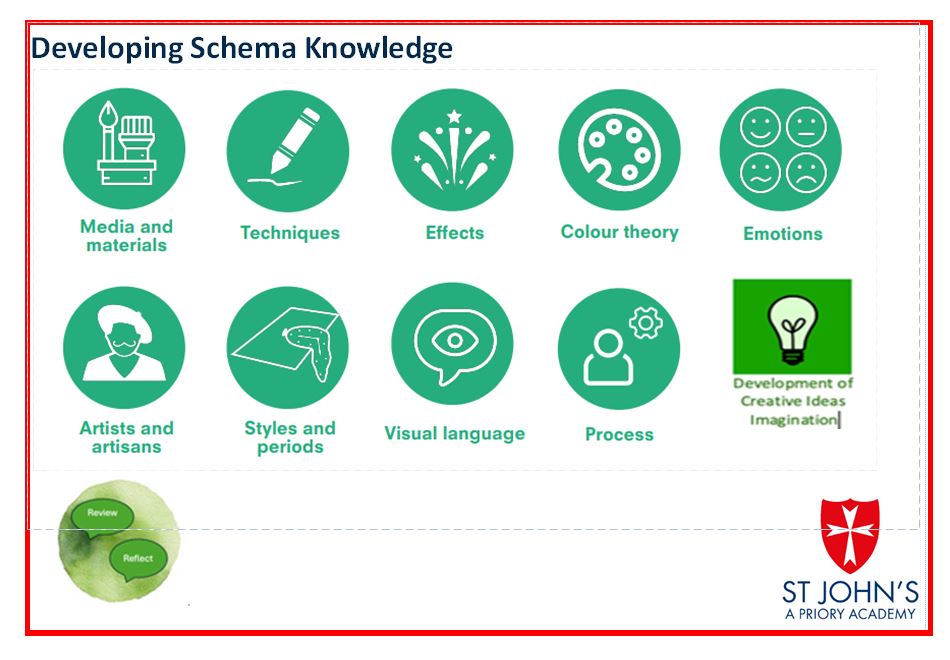Art and Design
"Every child is an artist." Pablo Picasso

INTENT
At St John’s Primary Academy, we value Art, Craft and Design as an important part of the children’s entitlement to a broad and balanced curriculum in an environment that is both relevant and engaging. Our intent is that, through a growth mindset approach, children are confident and happy to take risks whilst developing their knowledge, skills and creativity.
Children will have the opportunity to develop their ideas and record their experiences. They will explore and develop knowledge of significant and relevant artists, architects, craftspeople and designers on a local, national and global level. Children will become proficient in a variety of skills, including drawing, painting and sculpture, and will have experience of other art, craft and design techniques.
They will have the opportunity to explore, create and evaluate the practices and outcomes of both their own and others’ work. We aim that through these processes, children will build their confidence and self-esteem, contributing significantly to their well-being.
Our intent is for children to leave St John’s as artists who have a belief in their own unique creativity, a toolkit of transferable skills and an appreciation and love for art that will equip them not only for their secondary education but also their lives beyond.
IMPLEMENTATION
At St John’s, we follow the National Curriculum for Art and Design. We use our own bespoke curriculum to deliver these objectives, which is further supported by the use of Access Art to teach art sessions / learning journeys. This programme focuses primarily on developing knowledge and skills in the three key areas of drawing, painting and sculpture from Y1 to Y6. Learning is sequential and with progression clearly mapped out. Our curriculum follows a spiral curriculum model where knowledge and skills from previous year groups are returned to and retrieved.
Every term, a whole school ‘Artist of the term’ is learnt about by each year group. The artists selected celebrate local, British and global values, lifestyles and cultures. Where opportunities arise, our school displays are taken out into the wider community to be exhibited.
We recognise that learning happens when building on prior knowledge so we use the following knowledge areas to build schemas and therefore allow children to revisit what they have learnt before but applying it to a new context.
impact
Teachers continually draw upon observations and discussions with pupils as the key progression and assessment tool, to ensure that pupils are challenged and to identify pupils who need additional support.
From Year 1, children begin to develop their own sketchbook which is theirs to explore and develop their own art learning journey. Sketchbooks are passed on each year and are a prime source for assessing progression. They are also used as a learning tool as children retrieve knowledge and skills from previous learning.
Lessons are engaging and take on many forms, including but not limited to, exploratory, investigation sessions, direct teaching of knowledge / skills, art history sessions through the use of significant artists and also creative sessions.

